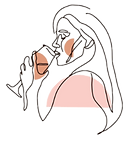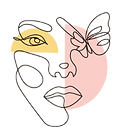
Specialties
& Expertise.

Anxiety & Chronic Stress
Anxiety and chronic stress are among the most common mental health challenges, affecting nearly 1 in 5 adults and 1 in 3 adolescents each year. Despite how widespread they are, their impact is often underestimated, quietly shaping how we think, feel, and interact with the world.
Therapy can have a profound impact on anxiety by helping you understand the root causes of your worry, identify unhelpful thought patterns, and develop practical coping strategies.
Through approaches like cognitive-behavioral therapy, mindfulness-based techniques, or somatic work, therapy teaches your nervous system how to respond more calmly to stress and uncertainty. It provides a safe space to explore emotions without judgment, reduce catastrophic thinking, and practice skills that shift your body and mind out of the “fight-or-flight” cycle.
Over time, this consistent support can lower baseline anxiety, increase resilience, and help you feel more in control of your thoughts, emotions, and daily reactions.

Burnout
Burnout is a state of physical, emotional, and mental exhaustion that does not improve with rest alone. It develops when demands from work, school, or life exceed your available energy and resources.
Burnout can leave you feeling drained, disconnected, and unable to fully engage with life. Recovery requires intentional change, including daily practices like setting healthy boundaries, checking in with your emotions, prioritizing restorative rest, and reconnecting with meaningful activities and people.
Therapy can be incredibly effective for addressing burnout by helping you recognize the patterns, pressures, and beliefs that contribute to chronic exhaustion. It provides tools to set healthy boundaries, manage stress, and prioritize self-care, while offering a space to process frustration, guilt, or overwhelm without judgment.
Through therapy, you can develop strategies to reconnect with your sense of purpose and motivation, restore emotional energy, and create sustainable routines that prevent burnout from taking over your personal or professional life.

Alcohol & Substance Misuse
Alcohol and substance misuse often begins as a way to cope with stress, emotional pain, or feelings of disconnection.
Among adults, nearly 20% struggle with substance use disorders at some point in their lives. About 25% of college students report engaging in binge drinking, and 10–15% of high school students report regular use of alcohol or other substances.
Therapy can play a crucial role in addressing addiction by helping individuals understand the underlying causes, triggers, and thought patterns that drive substance use or compulsive behaviors. It provides a safe, nonjudgmental space to explore emotions, develop healthier coping strategies, and build accountability.
Through approaches like cognitive-behavioral therapy, motivational interviewing, or trauma-informed care, therapy helps individuals break destructive cycles, strengthen resilience, and create sustainable habits that support long-term recovery and overall well-being.

Depression
Depression can feel like an invisible weight, draining you of motivation, joy, and self-worth.
Nearly 1 in 5 adults experience depression in their lifetime, and about 13% of adolescents experience a major depressive episode each year, often manifesting as persistent sadness, irritability, fatigue, or withdrawal from previously enjoyed activities.
Depression disrupts work, school, relationships, and even the simplest daily routines, making it difficult to feel engaged or connected.
In therapy, we explore the thought patterns, self-critical beliefs, and past or ongoing experiences that fuel feelings of sadness, emptiness, or hopelessness. You will learn ways to recognize and interrupt these patterns, process difficult emotions, and gradually rebuild routines and activities that bring purpose and satisfaction back into your life.

Motivation & Confidence
Struggles with motivation and confidence can leave you feeling stuck, second-guessing yourself, or afraid to take action. These challenges often stem from past criticism, unmet expectations, perfectionism, or a harsh inner voice that insists you’re not enough.
Research shows that nearly 1 in 3 adolescents and about 20% of adults report ongoing struggles with self-esteem and confidence that affect their ability to reach goals and thrive.
In therapy, we create a structured plan that includes identifying and challenging negative self-talk, practicing evidence-based skills like cognitive restructuring, goal-setting, and behavioral activation, and building daily habits that support confidence and self-trust.
Together, we track progress step by step so you not only silence the inner critic but also develop practical tools to move forward with clarity, courage, and lasting confidence.

Relationships
The quality of our relationships often mirrors the health of our inner world. Whether through conflict, unclear boundaries, or difficulty expressing needs, relational struggles can leave us feeling unseen or disconnected.
Research shows that 65% of adults report experiencing conflict in close relationships, and nearly 1 in 3 say it significantly impacts their mental health.
Therapy can significantly improve relationships by helping individuals understand themselves and others more clearly, communicate effectively, and navigate conflict with empathy and patience. It provides tools to identify unhealthy patterns, manage emotions, and set boundaries while fostering trust and connection.
Whether working individually or in couples or family sessions, therapy can strengthen interpersonal skills, deepen intimacy, and create healthier, more fulfilling relationships over time.